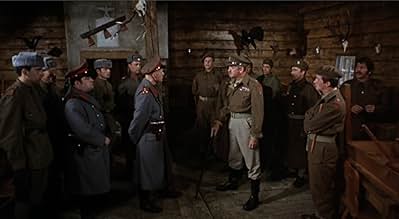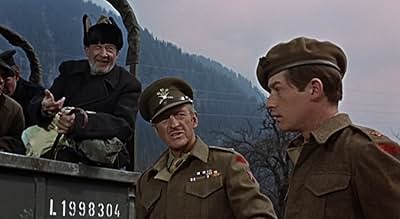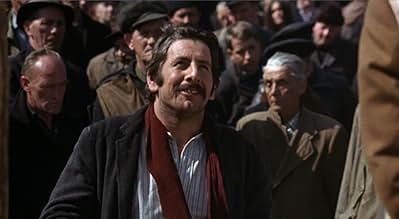David Niven makes a very remarkable performance here as an unwilling soldier in charge of a refugee camp (in the times of 4 million displaced persons in Europe) in Austria, where he has to send many paperless refugees into the Russian zone, where they have nothing good to expect in the days of big brother Stalin. He has a sore past that aches, but as a major in charge he has to stick to his stiff uppper lip, no matter what difficult trials he has to go through again. Topol makes a brilliant performance as the multí-lingual interpreter with many tricks up his sleeve, born in a cart between Tiflis and Tashkent, and he makes the best of it and is thoroughly entertaining, until the bleak reality of no peace after a war sets in, This is really a tragedy of several deep bottoms, and although David Niven is already thoroughly disíllusioned and Topol already is acquainted with the worst and has learned the hard way to survive, John Hurt as the young greenhorn still has his disillusions ahead of him, and they will strike him hard. Fortunately there is Anna Karina for a well needed sort of comfort to all of them.
The film is more serious than it seems, it tries to appear like a comedy, and there certainly are comic ingredients, but the comic gloss cannot hide or smooth over the cruelty of the reality.
Although the dark side of the Stalin regime should have been universally known to the world already after the Stalin trials of 1936, the west was amazingly naïve about Stalin and the true nature of his "communist paradise", as Roosevelt allowed himself to be duped by him and Churchill actually believed in him - until the cold war was a blatant fact, some time after the peace of the second world war, which never really ended but only took on less obvious inhuman activities of darkness.



































